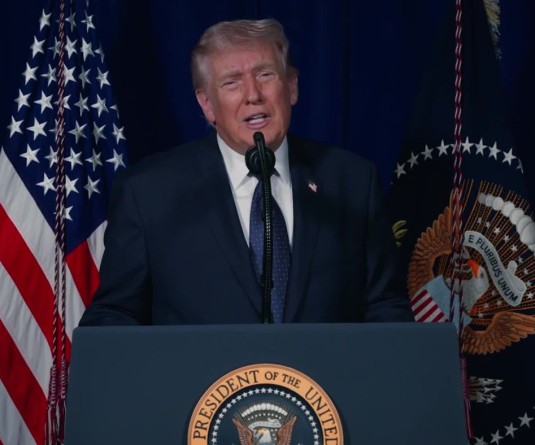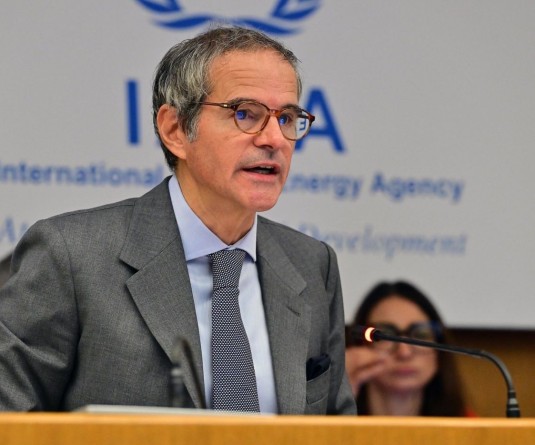
MILAN, April 6 (Reuters): Italian Prime Minister Silvio Berlusconi's trial on charges he paid an underage woman for sex opened on Wednesday and was adjourned until May 31 after just 10 minutes.
Berlusconi, who has escaped largely unscathed in the opinion polls over the "Rubygate" case, did not attend the session. Crowds of critics and supporters verbally sparred outside the court over whether the 74-year-old should go to prison. Some 100 television crews from as far away as Australia vied for space in front of the courthouse after the three female judges ruled they could not enter. About 100 journalists were packed inside the court.
Berlusconi is accused of giving cash and jewels to Moroccan-born Karima El Mahroug, a dancer who goes by the stage name of Ruby, in exchange for sex when she was 17 years old and thus too young under Italian law to be paid as a prostitute. He is also accused of abusing the powers of his office to have Ruby released from police custody over unrelated theft allegations to try to prevent details of their connection emerging in official evidence. He denies the charges. El Mahroug, who is a witness, also did not attend.
Critics of the prime minister, who is also facing other trials for corruption and tax fraud, said they doubted what the Italian media has dubbed "Rubygate" would ever be concluded. "I am angry because they will never sentence him. The law is not equal for everyone. If I steal an apple, I go to jail," said Aldo Giassi, 86, who wore a Berlusconi mask. His supporters, who set up a gazebo outside the court, said the prime minister was being pursued by leftists determined to destroy him politically, echoing Berlusconi's own words. "It's just dirt. They are trying to throw dirt at our prime minister," said Giovanni Esposito.
BUNGA BUNGA
Already hit by a party revolt last year that nearly sank his center-right government, Berlusconi has been hurt by the affair, which has drawn condemnation from women's groups, the Catholic Church and the country's main business lobby. But public opinion in Italy, traditionally forgiving in questions of private morality, has not been as damning as it would be in many countries and his parliamentary majority has been strong enough to see off opposition calls on him to resign.
Legal maneuvering may push the case into the kind of judicial limbo that has seen many past cases involving Italian politicians run into the sand. But even by the turbulent standards of Italian politics, the accusations are extraordinary and would almost certainly have ended the career of any other European leader, especially given the raft of unsolved problems facing the government.
Berlusconi, who has escaped largely unscathed in the opinion polls over the "Rubygate" case, did not attend the session. Crowds of critics and supporters verbally sparred outside the court over whether the 74-year-old should go to prison. Some 100 television crews from as far away as Australia vied for space in front of the courthouse after the three female judges ruled they could not enter. About 100 journalists were packed inside the court.
Berlusconi is accused of giving cash and jewels to Moroccan-born Karima El Mahroug, a dancer who goes by the stage name of Ruby, in exchange for sex when she was 17 years old and thus too young under Italian law to be paid as a prostitute. He is also accused of abusing the powers of his office to have Ruby released from police custody over unrelated theft allegations to try to prevent details of their connection emerging in official evidence. He denies the charges. El Mahroug, who is a witness, also did not attend.
Critics of the prime minister, who is also facing other trials for corruption and tax fraud, said they doubted what the Italian media has dubbed "Rubygate" would ever be concluded. "I am angry because they will never sentence him. The law is not equal for everyone. If I steal an apple, I go to jail," said Aldo Giassi, 86, who wore a Berlusconi mask. His supporters, who set up a gazebo outside the court, said the prime minister was being pursued by leftists determined to destroy him politically, echoing Berlusconi's own words. "It's just dirt. They are trying to throw dirt at our prime minister," said Giovanni Esposito.
BUNGA BUNGA
Already hit by a party revolt last year that nearly sank his center-right government, Berlusconi has been hurt by the affair, which has drawn condemnation from women's groups, the Catholic Church and the country's main business lobby. But public opinion in Italy, traditionally forgiving in questions of private morality, has not been as damning as it would be in many countries and his parliamentary majority has been strong enough to see off opposition calls on him to resign.
Legal maneuvering may push the case into the kind of judicial limbo that has seen many past cases involving Italian politicians run into the sand. But even by the turbulent standards of Italian politics, the accusations are extraordinary and would almost certainly have ended the career of any other European leader, especially given the raft of unsolved problems facing the government.






